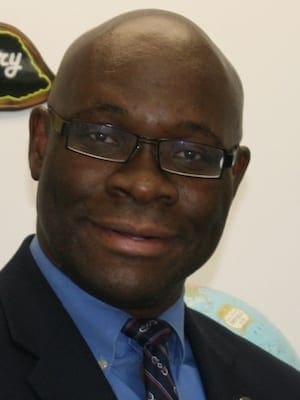Malaria is a deadly disease but also one of the most preventable.
Spread by infected mosquitoes that pass it on to humans, it affects countries in the tropics, mainly parts of Africa and Asia.
“Malaria is the third biggest killer of children globally, yet the disease is 100 percent preventable and treatable, making all malaria deaths unacceptable,” the United Nations Children’s Fund (UNICEF) says.
The fight against malaria has seen much success, largely the result of widespread vaccination.
“New research demonstrates that malaria deaths in Africa have been cut by one third in the past decade,” according to the International Medical Corps (IMC). “During that same period, 35 out of the 53 malaria-affected countries outside of Africa have seen a 50 percent reduction in cases.”
But dangers lurk. “Sustained investment remains critical to ensuring that gains are not lost and lives continue to be saved,” the IMC asserts. “Roughly half the world’s population is still at risk of being infected with malaria, with children and pregnant women the most vulnerable. Every year, malaria causes 655,000 deaths. Every minute, a child in Africa dies from malaria.”
The Centers for Disease Control and Prevention (CDC) of the United States reports that “in 2015 an estimated 214 million cases of malaria occurred worldwide and 438,000 people died, mostly children in the African region.”
The U.S. is not immune from malarial infection. “About 1,500 cases of malaria are diagnosed in the United States each year,” the CDC says. “The vast majority of cases in the United States are in travelers and immigrants returning from countries where malaria transmission occurs, many from sub-Saharan Africa and South Asia.”
The Baptist World Alliance (BWA) has been engaged in combating infectious diseases, such as malaria, for decades.
In 1958, the BWA collaborated with anesthesiologist Robert Hingson in conducting a medical mission survey that resulted in the founding of Brother’s Brother Foundation. Hingson is credited with creating the “peace gun,” a jet injector that made mass immunization possible.
Strategically, the BWA has worked through its member organizations and local agencies in its malaria response.
It was also a partner in the Micah Challenge, which encouraged Christians to support the Millennium Development Goals (MDGs), which included the combat against HIV/AIDS, malaria and other diseases.
In 2004, the BWA general council approved a statement calling upon “the nations of the world to take seriously the Millennium Development Goals of the United Nations in the desire to halve current levels of poverty by 2015.”
The BWA has also helped to provide clean water through the digging of wells. This not only helps prevent waterborne diseases, such as dysentery, typhoid and cholera, but also is a preventative measure against malaria and yellow fever as well.
Malaria and yellow fever are spread by infected mosquitoes, which tend to breed in dirty, stagnant water.
Another preventative measure adopted by the BWA is to provide medically treated nets.
In 2008 and 2009, the BWA partnered with the All Africa Baptist Youth Fellowship and His Nets to distribute about 2,000 nets in the West African country of Cameroon, preventing an estimated 5,000 deaths.
Three BWA member organizations – the Cameroon Baptist Convention, the Native Baptist Convention of Cameroon and the Union of Baptist Churches in Cameroon – came together to assist in the net distribution.
Other countries in West Africa to have benefited from this project were Togo, Benin, Ghana and Sierra Leone.
The Asian country of Myanmar received some 1,000 nets in 2008 after a devastating cyclone. In 2008 alone, about 25,000 medically treated nets were distributed through the direct support of the BWA.
In 2011 and 2012, the BWA spent several thousand dollars in malaria treatment and prevention in the Democratic Republic of the Congo in Central Africa.
Thomas, a former Baptist missionary and co-founder of His Nets, remembered, “I will never forget our first distribution in Ghana in 2005. With the help of Dr. Frank Adams (now deceased) of the Baptist World Alliance in Africa, we distributed 1,800 nets to pregnant women and families with children under 5 years old – the two groups most at risk of dying from malaria.”
The BWA has also sent medical supplies to affected areas. Through its gifts-in-kind program, Baptist World Aid, the relief and development arm of the BWA, sent shipments of medical equipment, machines and medicines to cover various illnesses, including malaria.
His Nets is an important resource in the fight against malaria. Baptist congregations and conventions and unions in affected and donor countries have joined the fight.
Baptists may turn to multilateral and national agencies that provide information, guidance and resources on malaria response.
These include agencies or groups that are part of or affiliated with the United Nations, such as the World Health Organization, UNICEF and the United Nations Foundation.
The CDC is the main U.S. agency that provides resources and information on malaria.
United Against Malaria, “a partnership of footballers, nongovernmental organizations, foundations, governments, corporations,” sponsors anti-malaria projects and programs.
The Worldwide Antimalarial Resistance Network, an independent network of scientists, “generates innovative resources and reliable evidence to inform the malaria community on the factors affecting the efficacy of antimalarial medicines.”
Baptists and other Christians are encouraged to join the battle to eradicate this most preventable of diseases.
Immunization has proven effective and should be supported where opportunities and means allow.
However, churches and Christian organizations can perhaps best respond by supporting the distribution of medically treated nets, a relatively inexpensive preventive measure.
Eron Henry is associate director of communications at the Baptist World Alliance.
Editor’s note: This article is part of a series for World Malaria Day (April 25).
The first article in the series is:
Baptist Church Plays Role in Curbing Malaria in Ghana
Eron Henry is a journalist, editor, author and minister. He has published a novel, “Reverend Mother,” and a compilation of constitutional provisions related to religious freedom, “Constitutionally Religious.” His blog, Ole Time Sumting, was recognized with an Award of Merit by the Religion Communicators Council in 2018.

